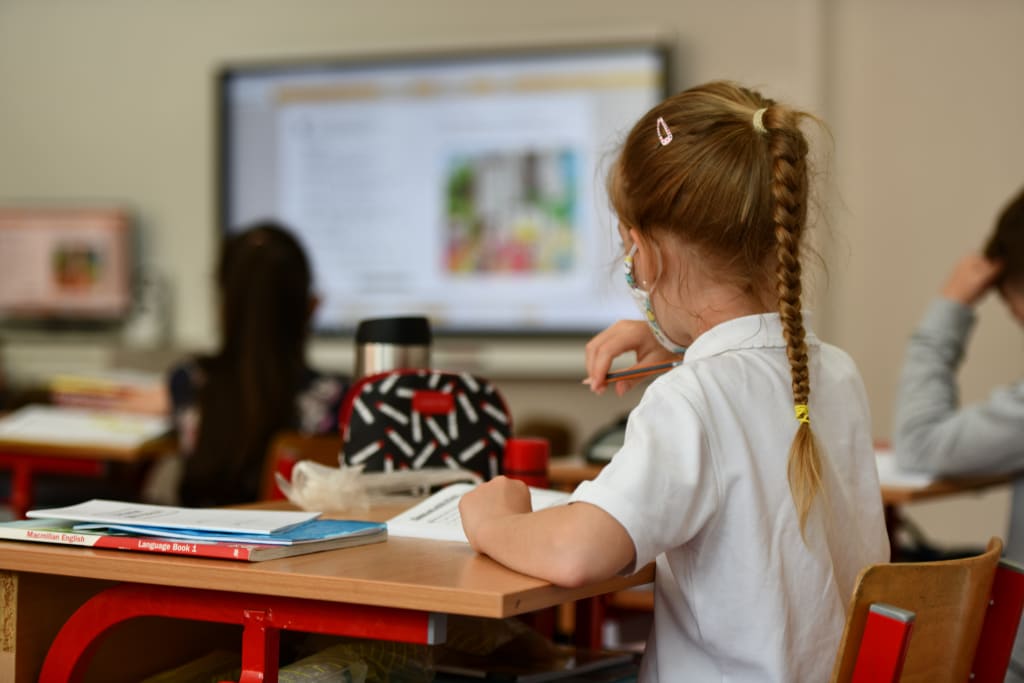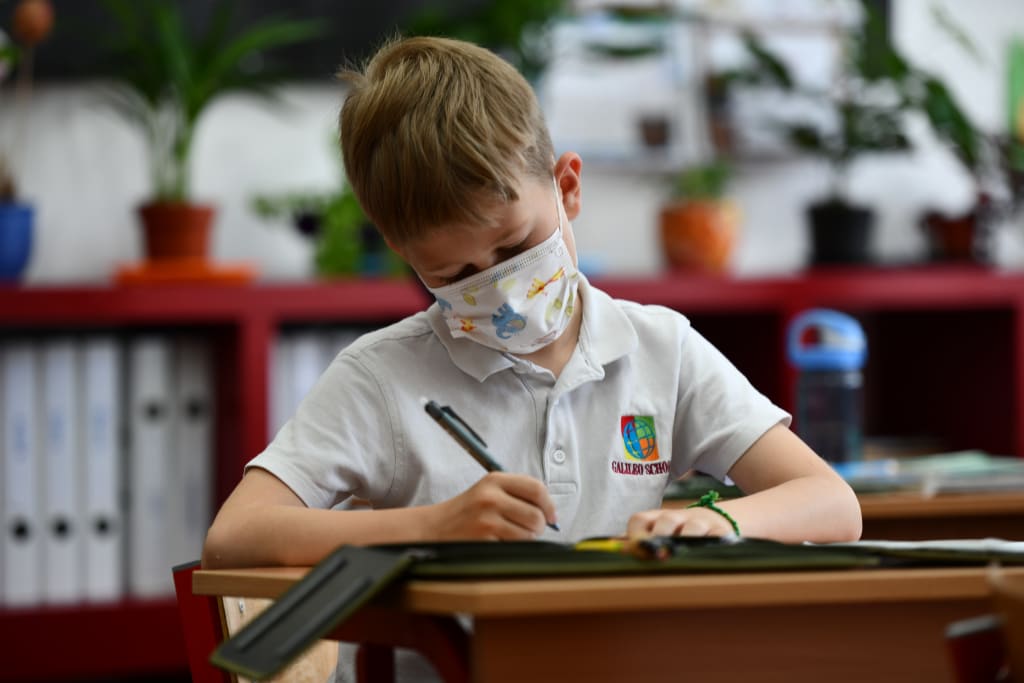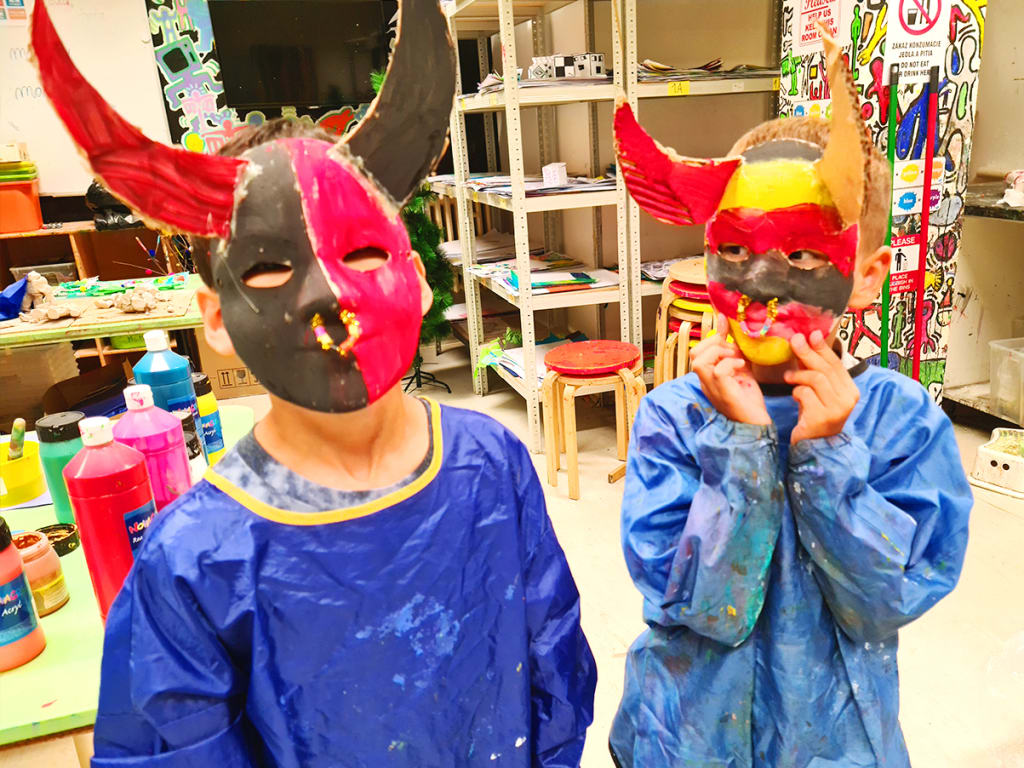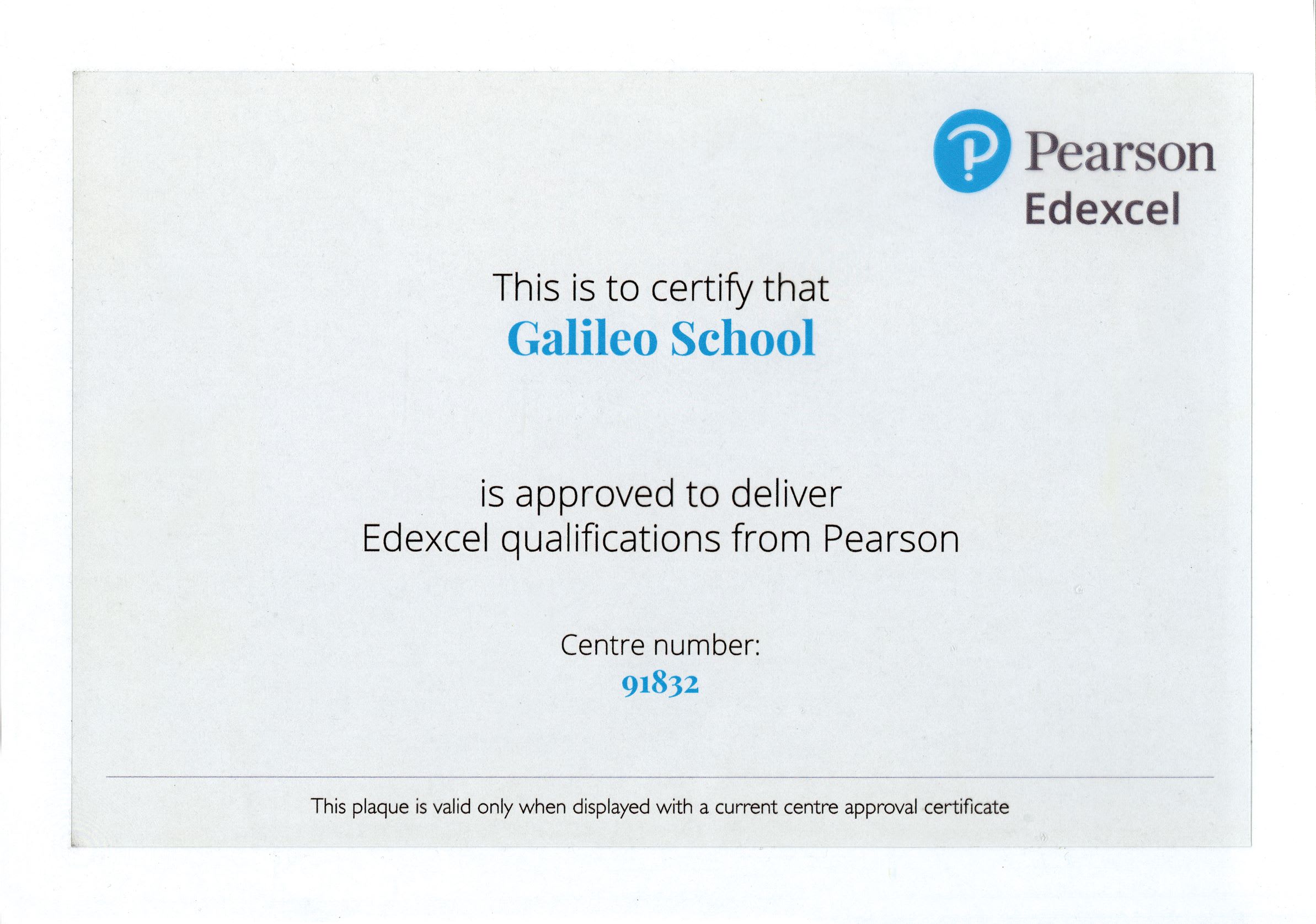
A modern school
A modern school can promptly react to currents societal needs. The year of COVID has tested the preparedness of GALILEO SCHOOL in moving all education to the online environment. Currently, the activities done at school are focusing on the socialisation of the pupils, their return to the company of their classmates. We do realise we are preparing students for jobs that do not exist yet today - that is the modernness and visionary approach of GALILEO SCHOOL.
There have been countless theoretical articles written about what a modern or a 21st-century school is. From our point of view, a modern school is one that can immediately react to impulses, situations, and current requirements of the society, as well as new challenges for the preparedness of the children for life after school in general. One of the competences of the 21st century is the digital literacy. The level of IT equipment has become a criterion in the evaluation process of the facility. The COVID period has tested this aspect of preparedness intransigently. In the times of thorough collapse of the education system, GALILEO SCHOOL completely transitioned to on-line learning. Our teachers have overseen programs offered to the whole Slovakia – for example, a set of dictation exercises read by famous actors and artists.
However, the post-COVID period has brought new needs. Even though the world and society are changing, moving forward with great speed, the 21st century school will keep the same mission – to educate and bring up the youth. The issue of social skills and morale has proven to be the key. A modern school reacts to the societal needs instantly.
Despite fast changes in science and technology, a person, in essence, remains the same. The emotive processes and their course do not change, and their management has become more challenging in today’s stimuli-rich world. In this aspect, a modern school plays an imperative role. The moral education is becoming not only the subject taught with certain periodicity, but extends throughout all other subjects, and is becoming a common part of everyday life at school, at home, and is a part of one’s actions.
The conditions for mastering the moral and social behaviours are not created solely by a good quality curriculum. The personality of a teacher too plays an important role, since they lead by example, carry out their job with enthusiasm and commitment, and prepare for the lessons scrupulously. In this manner, they themselves encourage the students’ interest in the covered topics as well as their effort to attend to their work conscientiously. The approach to the student is an equally important facet – the student becomes a partner. If the child is not forced to hide the lack of knowledge behind lies (the reason is often not laziness or unwillingness to cooperate, but insufficient understanding or slower comprehension), there is no need to come up with excuses, and it is much easier to behave in a moral manner. If the teacher becomes a true example of a person constantly working to improve themselves instead of seeming as an all-knowing and never-mistaken mentor, they rid the students of feelings of inferiority and provide them with room to accept themselves as unique beings - beings able to overcome their own defects, not fearful of making mistakes that come with life, but learning to work with and learn from them.
The development of all moral attributes, suppression of aggressivity, emotional intelligence, self-reflection and care of a healthy mentality are all parts of the educational process.

A transnational school
GALILEO SCHOOL would like to address all parents, who are looking for a school with English as the language of instruction with individual approach to students, a school, in which a computer and the internet are a natural part of the educational process.
Europe and the European union have nowadays become very frequent topics of conversation. Let us also add, that it is our children, whose road to Europe we are opening. However, this fact proposes itself with multiple tasks to tackle. It is our duty to equip the next generation accordingly for this journey – with education, and last, but not least, a communication tool – the language.
The efforts of foreign language inclusion into education are constantly moving towards lower and lower age groups. It is the young children who can acquire a good quality basis for their future language capabilities in a playful manner, without the feeling of studying and in a very short time span.
In the education program, GALILEO SCHOOL unites the intensive language teaching requirements with very high content standards approved by the Ministry of Education of Slovak Republic. The teaching of subjects is conducted in English with the use of original textbooks written in the English language as well. Only the subject of Slovak Language is taught in Slovak in the full extent of approved educational plans, with the full lesson allocation. Mathematics is taught in both Slovak and English languages.
Our school is approved by the Ministry of Education and is included in the Slovak school network. The rector of Constantine the Philosopher University in Nitra has taken upon himself the role of the guarantor of the learning process.
GALILEO SCHOOL would like to address the parents, who refuse the traditional teaching norms and are looking for a school with individual approach to students, a school, in which a computer and the internet are a natural part of the educational process.
A low number of students per class (approx. 16), a high-quality equipment and an experienced teaching staff with innovative ambitions are all a guarantee of an excellent quality education.

A bilingual school
The European Union programs promote the idea of everyone in the Central-European area speaking the minimum of three languages passively. It is possible to reach this goal if we start with the foreign-language education in the pre-school age of children.
The term bilingual is mostly connected to the category of high schools – specifically grammar schools. It is a widely known fact, that the ability to acquire a foreign language becomes lesser with age. Based on scientific observations, the space between 2 and 13 years of age is regarded as the optimum for foreign language acquisition. Researchers in the field of psycholinguistics, e. g. S. D. Krashan, specify the ideal limit to the pre-school age of 5 – 6 years.
They connect easier foreign language acquisition in this age with the following:
- The plasticity and flexibility of higher nervous functions in child age, which is lost after the maturing period,
- The biological predisposition and the so-called imprinting; according to the Nobel prize winner K. Lorenz, if this age is not utilized for the study of a second language, the chance to acquire the language easily, efficiently, and effortlessly is lost,
- The physiological processes of lateralization, the gradual specialisation of language centres in the left hemisphere of the brain (in first graders); this process is finished in puberty which marks the end of the optimal age of language acquisition,
- The so-called non-specific way, where the process of foreign language acquisition transpires in natural game-like situations,
- The time factor; in contrast with studying behind the desk, where the contact of the pupil with the language is restricted to a specific hour, with non-specific learning, the number of hours devoted to language stimulation is significantly higher,
- The natural pronunciation in foreign language, which is generally achieved only in childhood (as proven by the research of J. Asher and R. Garcia).
Private English Primary school GALILEO SCHOOL also takes the preparation of the pupils for bilingual education into account. The pre-school class of the GALILEO SCHOOL kindergarten for children in the age of five to six is devoted to this mission. The combination of English and Slovak languages is not restrictive in the choice of school in the higher grades either. We have therefore decided for the obligatory subjects of Slovak Language and partly Mathematics to be taught in Slovak, respecting the content and performance standards for elementary schools approved by the Ministry of Education of Slovak republic.
The European Union programs promote the idea of everyone in the Central-European area speaking the minimum of three languages passively. It is possible to reach this goal if we start with the foreign-language education in the pre-school age of children.
We would like to thank PhDr. Oľga Árochová, CSc. for providing materials used in this section.

A creative school
In a creative school, the pupil does not have to memorise vast amounts of data, they learn to find it, work with it, and apply it in practice.
In a creative school, the pupils themselves take an active part in the educational process, acquire the curriculum by their own exploration, and with the help of a teacher are able to search for information connected with the topic, to subsequently compile it in a form of a project or a discussion post. The content is adopted naturally and non-violently, and plots direct connections between the theoretical knowledge and its use in everyday life. The pupils learn to understand the relationships among occurrences, reasons, and consequences. They find the purpose of education, opening the amazing world of knowledge and bringing joy and satisfaction.
The teacher takes up the role of a coordinator, as a managing and guiding subject, as a helpful hand in explanations and clarifications. This work is very demanding for the personality of the teacher and their preparation for classes. It requires individual approach to pupils, a closer familiarization with each of them, the choice of a suitable method and technique. In this manner, the work becomes creative for the teacher as well and offers a vast array of options of the use of individual creative capabilities and subsequently greater satisfaction from the work.




